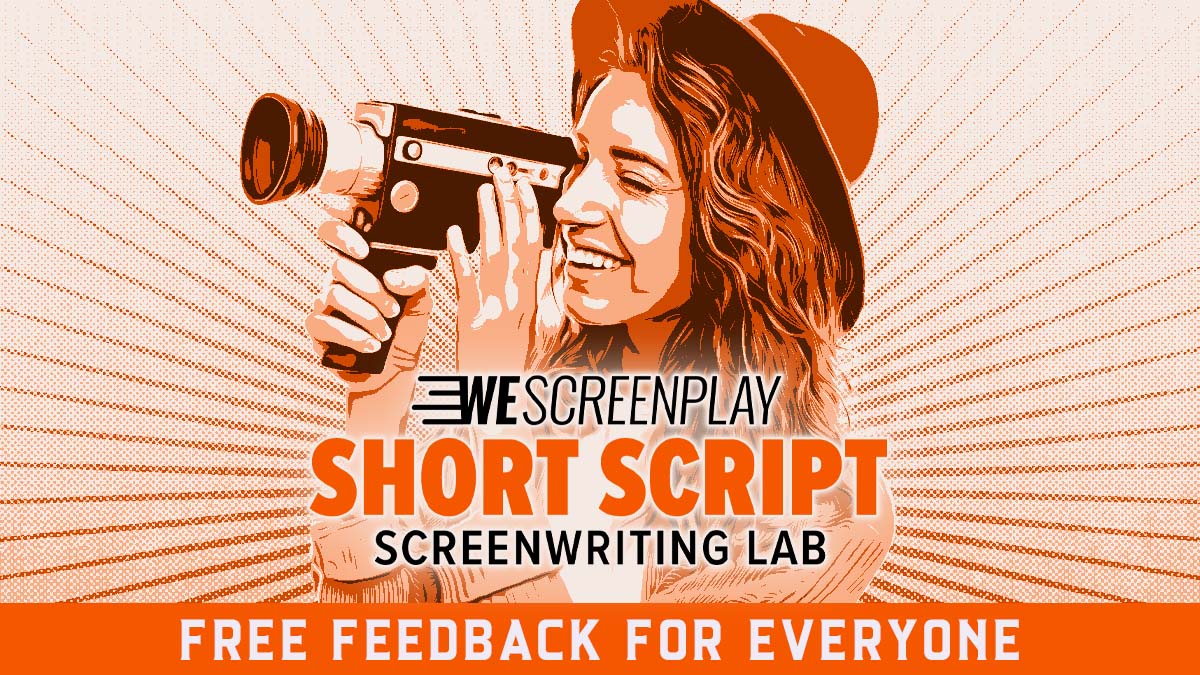
If you want to move up in Hollywood as a screenwriter, you’re going to need to focus on pleasing one single person — the script reader. They are the gatekeepers of studios, production companies, agencies, management companies, and even fellowships, contests, and competitions.
Some script readers are solely that — individuals that read scripts for companies and industry insiders. Others have dual positions as interns or assistants, where only part of their duties is writing script coverage for their bosses.
To get your spec scripts the attention they hopefully deserve, you have to find champions to fight for it. And that all starts with whoever reads your screenplay for the first time.
But how do you do that? What do script readers hope and wish for whenever they pick up a script to read, or open that PDF you’ve sent?
Here we feature the ten most desirable things script readers want from a spec script — straight from the perspective of a script reader with decades of studio-level experience.
Get a FREE first impression of your script from a professional reader. Learn more HERE!
1. We Want What Our Bosses Demand
The first duty of a script reader is not to find a great script. It’s to find what the bosses are looking for. That’s priority one. Forget about all of the rest.
A great period piece character study isn’t going to do a director and producer like Michael Bay any good — unless we’re in the Twilight Zone where he has changed his brand to costume dramas. No, if we’re working for an individual like that, we’re looking for the next pulse-pounding action flick.
Script readers have to cater to what their bosses are looking for. They could be working for a company that produces action flicks and come across a submission that is an excellent broad comedy. But it doesn’t matter because that’s not what the bosses are seeking to find. They want their next action blockbuster.
So when you market your spec scripts, be sure that you’re sharing that project with the right people. It doesn’t matter how much they may love it and how great it is. If it’s not what the bosses are looking for, there’s no way they’re going to send it up the ladder.
And screenwriters should also take comfort in knowing that just because a script reader passed on a script doesn’t always mean that it’s terrible or unworthy. They may have too many scripts like yours, or their bosses may be looking for something more specific.
2. We Want Original Scripts! Not Carbon Copies or Versions of the Latest Trend
It’s a myth that Hollywood doesn’t like original screenplays. Okay, maybe major studios love their franchise babies. But script readers? We love original scripts. We love something new and different.
Think about it. Script readers read dozens of screenplays every week. And we’re tasked with writing coverage on those dozens of screenplays every week. On top of that, we have to write summaries of each of those screenplays and their stories.
So how boring do you think it is to read carbon copies or the latest version of what was a hit at the box office this year?
It’s painfully boring. We don’t care how well-written your carbon copy is. We don’t care that it hits all of the same great beats as last year’s top box office draw. We don’t care if you’ve changed just enough to make it different, but the same. We’re bored. We’ve read it all. Give us something new and original.
Give us Parasite before it was Oscar-winning Parasite. Give us Get Out before it was Oscar-winning Get Out.
Yes, that involves you taking risks. That involves you pushing the envelope a bit.
It may seem like we’re contradicting ourselves when you compare this with #1, but the trick is to stay in the sandbox of whatever genre you’re vying for, but attempt to come up with something as original as possible.
It’s scary — but brave. Be brave.
3. We Want Structure, Not Formula
Despite what you may or may not have been told, there’s not a single script reader in Hollywood that has been directed to look for scripts that follow a particular formula.
- This happens on that page
- That happens on this page
There are some great lessons to be learned from studying beat sheets and whatnot, but nobody is expecting or wanting screenwriters to hit those beats or follow those formulas to a T. Too many screenwriters mistake structure for formula. They are two very different things.
Just tell your story — and tell it well.
4. We Want to Be Thrown Into the Fire of Your Concept and Conflict
When we watch movies from the great auteurs like Quentin Tarantino, Paul Thomas Anderson, and Terrance Malick, we love a good slow build or burn — primarily because they are masters of tone and atmosphere that we’ve grown to love, admire, and treasure.
But when it comes to spec scripts that we have to read every week? No. There’s no time for slow builds or slow burns. We’ve got a stack of scripts that we have to get through. We can’t wait twenty or thirty pages before we know what the concept is or what the core conflict is going to be.
Throw us into the fire of your concept within the first few pages. Yes, we know that some fantastic movies and screenplays have taken longer than that. But there’s a stark difference between a studio script developed within the studio and production company walls and a spec script from an unknown writer. You’ve got to make an impression — and you need to make it quick. Structure your screenplay where we can be thrown into the fire quickly. And that means throwing your characters into the fire of the concept or conflict quickly so that we can experience it vicariously through them.
Sometimes that means a big hook scene or sequence to start things off. Sometimes that means opening the script later in the story and leaving us on a cliffhanger as you time jump back to the beginning. Be creative. There’s no single answer on how to accomplish that. But don’t let that be a hindrance. Let it represent freedom for you to find creative ways to throw your characters — and script readers — into the enthralling and engaging concepts you’ve developed.
5. We Want Consistent Greatness Throughout the Whole Script
It’s not enough to just have a great opening. It’s not enough to just have a great second-act twist. It’s not enough to just have an outstanding ending.
You need to give script readers the whole shebang, the whole ball of wax, the whole enchilada. So do your best to develop your stories. Do the front-end work that you need to do to make sure that you’re re-engaging us every few pages.
6. We Want Something Cinematic
This may be the most underrated aspect of screenplays.
Scripts aren’t literary stories. They are blueprints for a visual medium. And because script readers love movies so much, they’ve chosen to work in a visual medium, as opposed to the publishing industry. So we want cinematic screenplays.
This isn’t about special effects, exotic locations, and beautiful opportunities for outstanding cinematography. We want the screenplay to be written in a way that we can see it as a film. This hearkens back to the wise screenwriting adage of show, don’t tell. Don’t have characters tell us the story. Don’t have them tell each other how they feel inside in reaction to the conflict they are dealing with within the story. Show us.
We’d prefer a thrown chair over a line of dialogue about how upset a character is. We’d prefer to see a character’s death over having two characters talk about it.
Take this iconic scene from Pixar’s Up. Not a single line of dialogue is spoken. Yet we know every single emotion felt by those characters. Why? Because we see it unfold before our eyes.
7. We Want Characters We Can Empathize With
Empathy can be defined as the action of understanding, being aware of, being sensitive to, and vicariously experiencing the feelings, thoughts, and experiences of another. That’s what we want to feel. That’s what the audience wants to feel. We want to live vicariously through your characters because that is what the cinematic experience is all about.
And make no mistake, this isn’t about making your protagonists likable. Today in cinema and television, that has become more and more blurred thanks to characters that are flawed or best defined as antiheroes.
Lead protagonists in shows like The Sopranos, Game of Thrones, Breaking Bad, The Walking Dead, and Yellowstone focus on characters that aren’t always likable — yet we feel empathy towards them because of various character traits and situations.
Empathy is a powerful tool in screenwriting.
- You can use it to create more understanding for darker characters.
- You can use it to create more insight into your antagonists and villains to make their characters more interesting and relatable.
- You can use it to better connect with the audience — and the script reader.
8. We Want Cathartic Moments
Catharsis is the lasting feeling we experience after the story is resolved. It’s what touches us and leaves us emotionally affected.
In Die Hard, it’s one thing to tell a story about the hero defeating the bad guys. It’s cathartic to see the hero reunited with his estranged wife amidst a renewed love.
In Field of Dreams, it’s one thing to see a farmer create a magical baseball field that brings baseball’s greats back to life. It’s cathartic to see him reunited with his estranged father as we watch them finally have that “catch” together.
In E.T., it’s one thing to see a boy discover an alien. It’s cathartic to see him strongly affected by the divorce of his parents and finding a much-needed friend, only to realize he must ultimately let him go.
Do your best to find cathartic themes that you can apply to your stories — especially those within genres like action, sci-fi, comedy, and horror that don’t typically have those dramatic types of themes.
Script readers are no different than the audience. We want to be moved.
9. We Want to Be Surprised
Twists, turns, and revelations are like candy to script readers. We’re so used to the story beats that most screenwriters try to emulate. But when a script really surprises us, we’re hooked.
Challenge yourself as a writer. Ask yourself, “What would I expect to happen next while watching this movie in the theater?” And then do the exact opposite — or take us sideways in ways we couldn’t possibly imagine.
If you’ve truly surprised a script reader, you’ve won them over. And if you continue to do so within a single screenplay, you’ll have a true champion that will fight for your script.
10. We Want a Perfectly Polished Draft
In the eyes of a script reader, there’s no place in our hands or screens for first drafts or unpolished drafts.
Remember, it’s all about the experience of the read and making it as pleasant, engaging, and entertaining as possible for the script reader. And it’s very difficult to have that type of positive experience when the script is difficult to read.
We want polished drafts. We want your best work. We want to experience your stories and characters in the best possible way. No matter where you are submitting your spec scripts, don’t send anything but a polished final draft.
_______________________________________________________
There are endless wants, needs, likes, and dislikes that individual script readers in Hollywood have. There is no way to cater to each and every one of them.
But these ten are the most universal desirables that all script readers covet. Learn them. Remember them. Master them.
Michael Vanju has over twenty years of Hollywood experience in screenwriting, script reading, story analyzing, and development.
For all the latest from WeScreenplay, be sure to follow us on Twitter, Facebook, and Instagram.
















